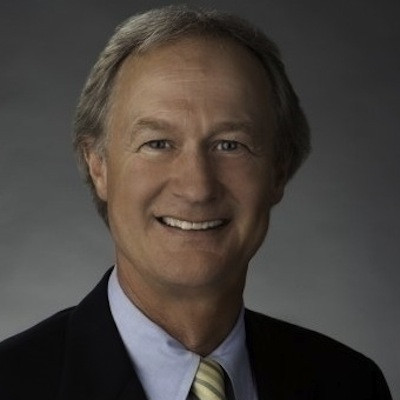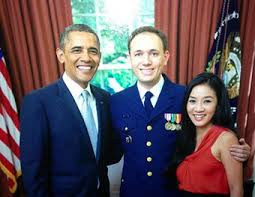John Perilli: Keeping Outside Money Out of 2014 Election
Wednesday, February 05, 2014
People's Pledges are a good way to combat outside money in politics, but they must be enforced seriously by voters, believes John Perilli.
This past Friday, when the five candidates for Rhode Island's highest office revealed their most recent fundraising hauls, the numbers were mind-numbing. All three Democrats are already holding onto at least seven figures' worth of campaign cash, and both Republicans are not far off that mark. Treasurer Gina Raimondo leads the way with a stunning $2.5 million, or about $2.50 per constituent. That's a fundraising ratio on par with a Presidential election. Democratic newcomer Clay Pell just lent his campaign $1 million of his own money.
But in my mind, the most important number revealed last Friday was this total: $100,000.
GET THE LATEST BREAKING NEWS HERE -- SIGN UP FOR GOLOCAL FREE DAILY EBLASTThat is how much money one couple––former Enron trader John Arnold and his wife Laura––gave to an independent political advocacy group formed to support Treasurer Raimondo. This group, called American LeadHERship, is not bound by the normal rules of campaign finance. There are strict limits on direct campaign donations in Rhode Island of $1000 per donor, per candidate, per year. But American LeadHERship is a so-called "Super PAC," and can raise and spend whatever it wants as long as it does not directly coordinate with a campaign.
One wealthy power couple, having as much of an impact by themselves as a hundred or more ordinary donors––what is at all democratic about that?
These outside spending groups, a thorny mess of PACs and their more sinister cousins the Super PACs, pose a serious problem for our elections. Most of the money raised by the candidates for Governor comes from individual voters, from Rhode Island and elsewhere, but outside groups represent organized interests. They do not necessarily reflect the voting public as a whole. Some of these groups can give directly to candidates, and others cannot. Combined, though, they can influence elections far beyond what any one voter could do alone in the polling booth.
However, some candidates are pushing back. They are rejecting PAC dollars and telling Super PACs that their independent help is unwelcome. The aspiring Governors of Rhode Island might be able to come together and reject outside spending, through an agreement known as the "People's Pledge."
Keeping the People's Bargain
A "People's Pledge," simply put, is when opposing candidates come together to agree that they will not accept certain forms of outside spending in their election. The idea gained popularity in 2012 after Sen. Elizabeth Warren and then Sen. Scott Brown agreed to one in their marquee U.S. Senate battle in Massachusetts. It quickly caught on as a relatively simple, voluntary way to keep outside spending out of elections, as well as to make a statement about the lack of serious campaign finance reform in the U.S.
While the two Republican candidates for Governor of Rhode Island, Mayor Allan Fung and Ken Block, have appeared cool to the idea, the three Democrats look as though they might make a deal. Mayor Angel Taveras and Treasurer Raimondo have both called for a strong Pledge, and Clay Pell has declared independently that he will not to take PAC money. If Pell were to hop aboard and agree to a Pledge, then we may well have a Democratic primary with no outside spending. And in what is already a multimillion-dollar race, that's quite a stride in the right direction.
But the specter of American LeadHERship PAC still looms. What if Treasurer Raimondo decides that she's better off without a Pledge, and that she could get away with tacitly allowing the group to step in on her side? Or what if Taveras or Pell make a similar decision?
The Pledge's Pitfalls
Remember: nothing is legally binding the candidates to stick with the Pledge. One of the main strengths of the People's Pledge––the fact that it is a voluntary compact––is also one of it's greatest weaknesses. And all it takes is one defection for the whole deal to go sour.
It might not have been too hard for Elizabeth Warren and Scott Brown to sit down and hash out a deal. After all, it was just the two of them. But our Democratic primary for Governor features three competitors, which turns the bargaining process into a vicious triangle. Each candidate must negotiate with two others, all the while calculating: Will this help me, or will this hurt me?
The larger a race is, the harder negotiating a Pledge becomes.
There are examples of races with more than two candidates negotiating a Pledge, but they are overshadowed by some ghastly counterexamples. In last year's mayoral primary election in Boston, a wide-open brawl with a dozen candidates, negotiations for a People's Pledge completely collapsed, and the race devolved into a shouting match full of cheap grandstanding and finger-pointing.
So what can be done to make these Pledges work, even in tough circumstances? How can we make sure candidates honor their words, not just in the early months of a campaign but right up until the election?
Raising the Stakes
We simply have to increase the penalties of defecting from the deal. And since People's Pledges are voluntary, we, the voting public, must do the enforcement ourselves.
I'm not talking about "the people" in abstraction. I mean we, the voters, the donors, the journalists, the bloggers, the readers––in fact, anyone who is concerned enough with outside spending to make it an issue they would vote on.
We must make it clear to candidates that if they defect from their promises, they will be punished on election day. This would be especially effective in primaries, where small differences between the candidates could have huge impacts among a compact, ideological voting bloc. If candidates fear the consequences of taking outside money, they will not only be more likely to enter a Pledge, but also more likely to uphold it.
Until substantive campaign finance reform is passed in the United States, we must take what measures we can to curb the menace of dark money and independent spending. The People's Pledge is by no means a perfect solution, but has achieved some notable successes. And if we as observers and voters can make it clear that we are serious about enforcing these Pledges, we might just send a great disease of our democracy into remission.
John Perilli is a native of Cumberland, RI and a junior at Brown University. He is the Communications Director for the Brown University Democrats. The opinions presented in this article do not necessarily represent those of the organizations of which John Perilli is a member.
Related Slideshow: 10 Questions Pell Has to Answer When Running for Gov of RI
Related Articles
- Don Roach: OMG! The Government Shuts Down!
- NEW: Clay Pell Announces Run For RI Governor Via Video
- The 15 Most Expensive Government Programs in RI
- GOP Governor Nominee: Block or Fung
- NEW: DePetro’s Attorney Blasts Governor Chafee
- The Scoop - Rep. Shekarchi Not Ruling Out Run for Lt. Governor
- Gary Sasse: Grading the Governor’s Fiscal Stewardship
- NEW: Raimondo Launches Bid for Rhode Island Governor
- The Scoop: Avedisian Still Considering Running for Lt. Governor
- Introducing: RI 2014 Governor’s Race Weekly Scorecard
- PODCAST: Battle Heats up over Minimum Wage in RI Governor’s Race
- Battle Heats up over Minimum Wage in RI Governor’s Race
- John Hazen White’s LOOKOUT: Who Wants to be Governor of RI?
- RI 2014 Governor’s Race Weekly Scorecard
- Block Reports $550K for 3rd Quarter in RI Governor’s Race
- John Perilli: Don’t Axe the Lieutenant Governor
- RI 2014 Governor’s Race Weekly Scorecard
- Campaign Bosses with Best Track Records in RI Governor’s Race
- Ken Block to Run for Rhode Island Governor as Republican
- Raimondo Enters RI Governor’s Race via Video
- EXCLUSIVE: Clay Pell Looks To Run For Governor in 2014
- Lisa Blais: State Government Exasperates RI Taxpayers
- Rob Horowitz: Government Shutdown A Disaster for House Republicans






















